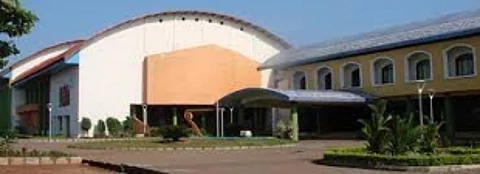

MARGAO: The non-availability of the Ravindra Bhavan, Margao for staging tiatr shows in view of the upcoming International Film Festival of India (IFFI) has left senior tiatr directors and tiatr lovers looking at major losses and a big hit on their livelihood. Shows through October and November are the biggest sources of earnings for the community.
Tiatr directors have now demanded the government come out with a scheme to provide them with financial assistance to stage shows in villages.
The tiatr fraternity has claimed that tiatrists will be deprived of their livelihood in November as hundreds are dependent on tiatrs.
Speaking to O Heraldo, Menino Fernandes, popularly known as Menino de Bandar said that in the past government through the Art and Culture Department launched a special scheme for the tiatr directors, wherein financial assistance was provided to stage tiatrs in villages due to the non-availability of the auditorium during IFFI.
“We want the government to help the tiatr fraternity with the implementation of the same scheme in November to ensure that tiatr directors don’t suffer from the losses,” he said.
Fernandes said that Ravindra Bhavan, Margao is the only auditorium, which is suitable for tiatr directors besides tiatr lovers.
“There are hundreds of tiatrists purely dependent on the tiatr to earn their livelihood. And hence, they will be now deprived of their daily bread,” said Fernandes.
He claimed that staging shows in the Gomant Vidya Niketan is a loss for tiatr directors.
Upset over the non-availability of the Ravindra Bhavan, Margao for tiatr shows, senior tiatr director Roseferns called for keeping the auditorium open for at least a few days in November for stating tiatrs.
“It has been brought to my notice that taking the opportunity of the IFFI, all the repair works pertaining to the main auditorium will be completed which is the need of an hour. But at the same time non-availability of the auditorium for the entire month is unfair,” he added.
Meanwhile, few tiatr lovers charged that the government is giving less importance to the tiatr, which is a unique form of art.
“The government and the authority concerned must remember that tiatr shows generate maximum revenue at the Ravindra Bhavan, Margao. Depriving tiatr lovers of tiatrs during the period where new shows are being released by tiatr directors is unfair on the part of the authorities,” said Concy Fernandes, tiatr lover from Fatorda.
OPINION
Do Goa’s strongest cultural ambassadors have to run around looking for places to
showcase their art?
When the National Games or the International Film Festival come to Goa, they are moments of pride. But when Goa’s greatest cultural ambassadors- tiatrists- are told that they cannot stage shows at Ravindra Bhavan, Margao, one of the seats of tiatr in Goa, because of the film festival, it’s a cruel blow to the
tiatr fraternity.
Tiatrists are proud people. Even during Covid when there were no shows for close to two years, many members of the support crew of tiatr production suffered without work. But the fraternity maintained a dignified silence.
When the Kala Academy renovations started but deadlines for completing this Shah Jahan standard tender-less project kept extending, tiatrists kept calm.
But the decision of the government and the organisers of IFFI to take over the Ravindra Bhavan auditorium, without even a cursory discussion with tiatrists, who wanted to stage their shows, including new releases is indicative of the neglect towards Goa’s best-recognised art form.
Not giving respect to the staging of tiatrs is disrespecting Mother Goa itself. Tiatrs are perhaps one of the last remaining symbols of the ethos, culture and vibrancy of Goa’s state art.
Exponents of this art are our state assets. The welfare of the art and its artistes should be the bounden duty of the government and its institutions. Tiatrists have clearly said that if they don’t get access to Ravindra Bhavan, they would prefer to go to the villages across Goa to stage their shows.
For tiatr lovers in Goa villages, this would be like winning a cultural lottery. However, for all categories of tiatrs and shows to be able to survive, the financial assistance scheme must be reintroduced so that shows can be planned in rural areas without any financial burden on tiatr producers.
The powers that be must understand that when you try squeeze out artists from their art, it is the society and the land that suffer that most, because culture and art are living and breathing concepts